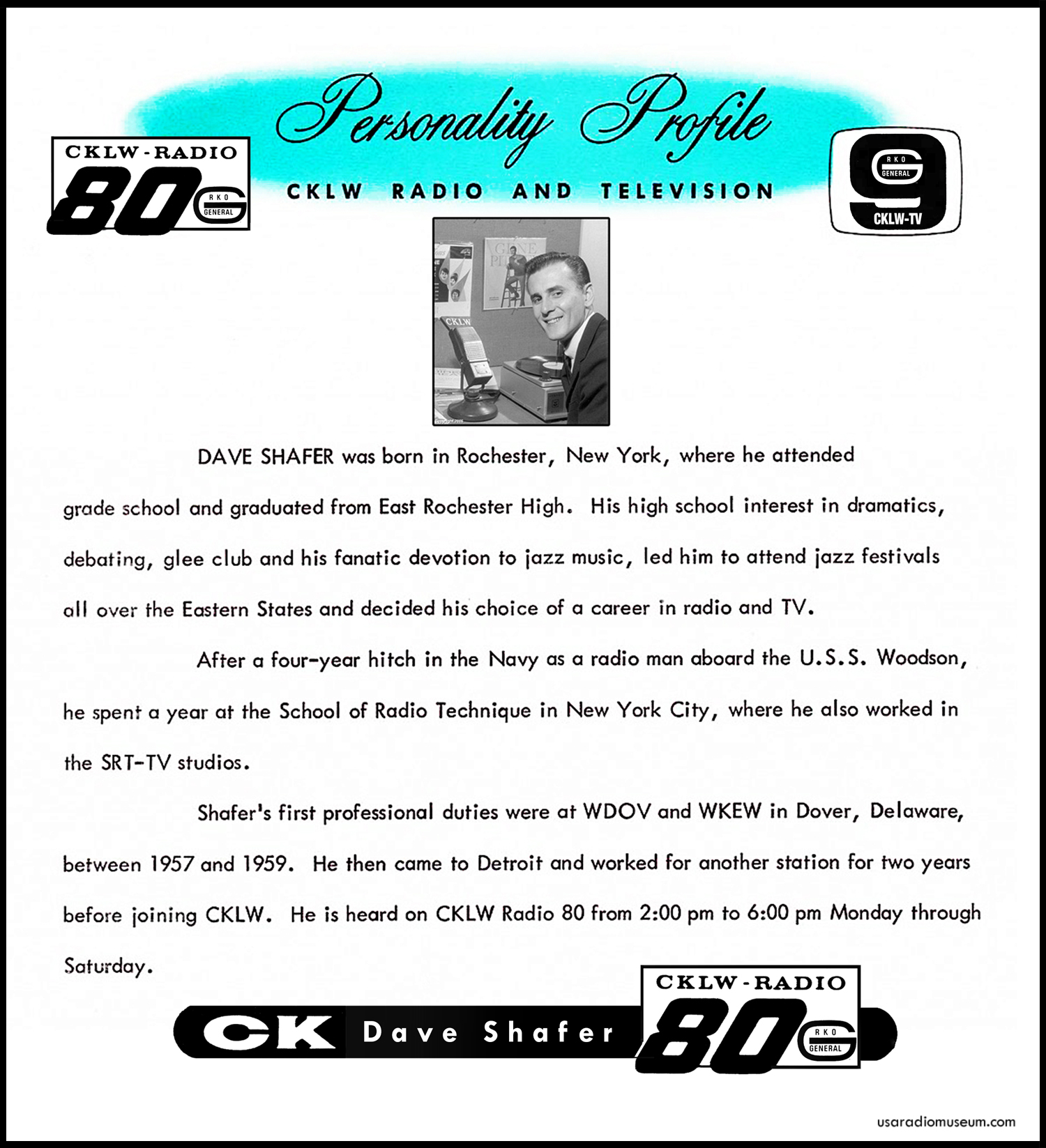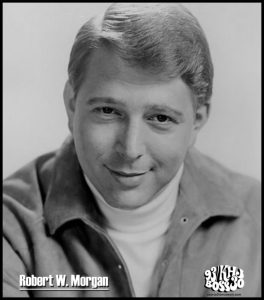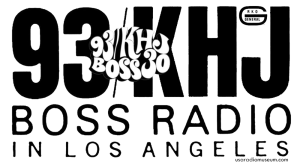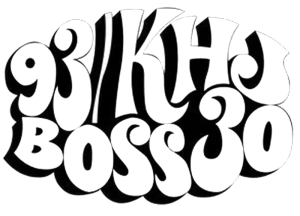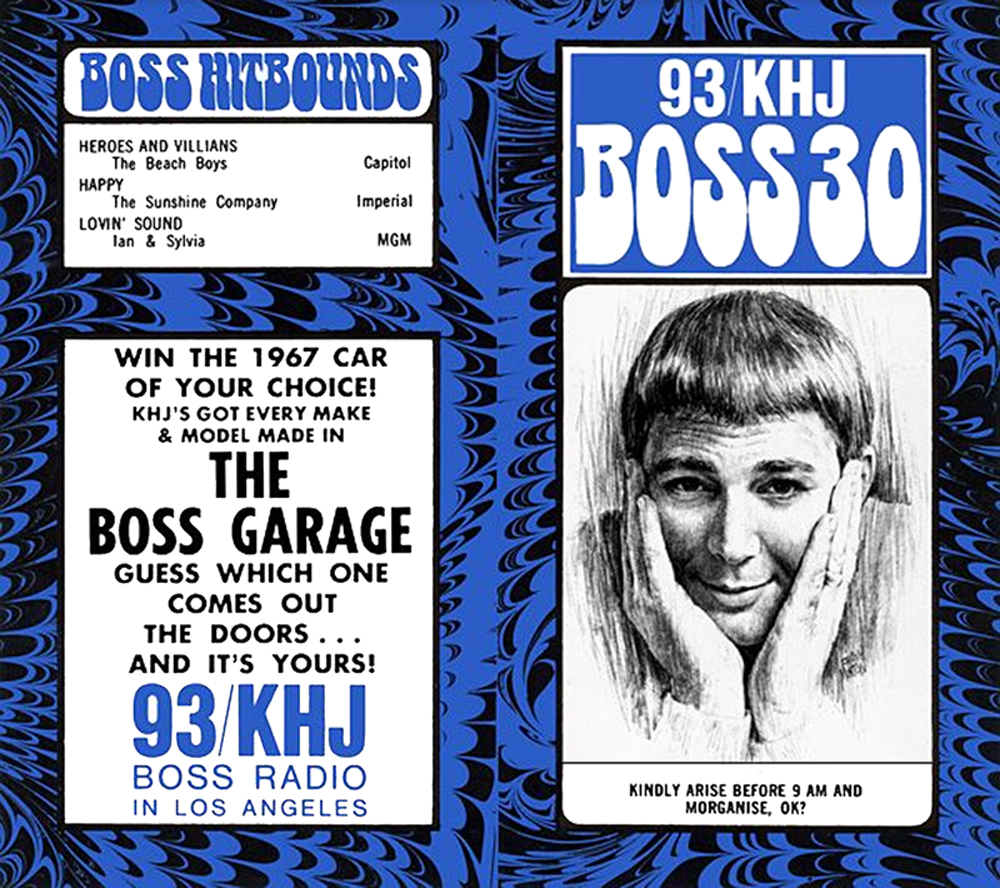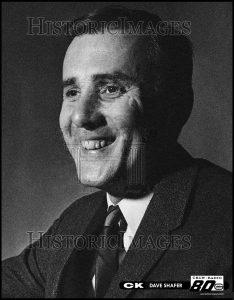 Dave Shafer was a prominent radio personality in the Windsor/Detroit market, best known for his work at CKLW 800, one of the most influential radio stations in North America during the 1960s.
Dave Shafer was a prominent radio personality in the Windsor/Detroit market, best known for his work at CKLW 800, one of the most influential radio stations in North America during the 1960s.
Dave Shafer began his career in radio in the 1950s, working in various markets before joining CKLW in the early 1960s. CKLW, located in Windsor, Ontario, served the Detroit area as well, and by the mid-1960s, it had become a powerhouse in Top 40 radio. The station’s reach and influence across both sides of the U.S.-Canada border made it one of the most important broadcasters in the region.
Having tapped early-on radio aspirations during his high school days, Dave Shafer left Dover, Delaware for Detroit in 1961. He landed his first radio job as music librarian at WJBK. Shafer eventually found his way behind the microphone – in studio – as the new “Jack the Bellboy” by the following year in 1962. And thus began Dave’s storied, three-decade broadcasting career in Detroit radio. Including stops at WCAR, WOMC, WCZY, along with a 11-year run at CKLW radio in Windsor, Ontario, in the 1960s and 1970s.
CKLW Morning Show
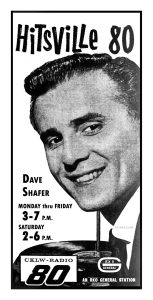 In 1963, Dave Shafer, a.k.a. as “Jack the Bellboy’ while at WJBK, made the leap across the Detroit River for RKO General CKLW in Canada. He became a key figure at CKLW, hosting the highly popular morning show. His friendly, energetic delivery and ability to connect with listeners made him a beloved personality in the area. His morning show was known for its lively presentation, including the latest pop music, news, and often humorous commentary. His presence helped set the tone for the station’s success, as CKLW had a major impact on shaping the Top 40 format in the region.
In 1963, Dave Shafer, a.k.a. as “Jack the Bellboy’ while at WJBK, made the leap across the Detroit River for RKO General CKLW in Canada. He became a key figure at CKLW, hosting the highly popular morning show. His friendly, energetic delivery and ability to connect with listeners made him a beloved personality in the area. His morning show was known for its lively presentation, including the latest pop music, news, and often humorous commentary. His presence helped set the tone for the station’s success, as CKLW had a major impact on shaping the Top 40 format in the region.
Influence and Legacy
Shafer’s work at CKLW made him one of the prominent voices of Detroit and Windsor radio during the 1960s. CKLW was known for its fast-paced “Boss Radio” format, popularized by the likes of Bill Drake and station programmer Paul Drew, and Dave Shafer was one of the voices that kept listeners tuned in every morning. His ability to entertain and inform made him a central figure in the lives of many local listeners. CKLW’s success during this period was largely due to its combination of top-notch personalities, including Shafer and Tom Shannon, and its cutting-edge approach to radio.
Later Career and Impact
Though his career took him to other stations over the years, he is most fondly remembered for his role at CKLW. Even after his departure from the station, Shafer remained a respected figure in the world of broadcasting, contributing to the evolution of radio in the Detroit area.
Having long retired from the broadcasting profession and living in Florida, Dave passed away on May 7, 2006, at the age of 73.
Today, Dave Shafer is remembered as a key part of CKLW’s golden era during the 1960s, an era that shaped the future of Top 40 radio in North America. His influence as a morning personality on CKLW continues to be celebrated by those who remember the station’s heyday.
 NEW! A special THANK YOU to Mark Yurko, of Langhorne, PA., for this CKLW aircheck contribution for our USA Radio Museum repository. Featured here, we’ve archived this 1965 CKLW audio memory into our aircheck collection.
NEW! A special THANK YOU to Mark Yurko, of Langhorne, PA., for this CKLW aircheck contribution for our USA Radio Museum repository. Featured here, we’ve archived this 1965 CKLW audio memory into our aircheck collection.
AUDIO REMASTERED! This audio recording was digitally enhanced by USA Radio Museum.
![]()







